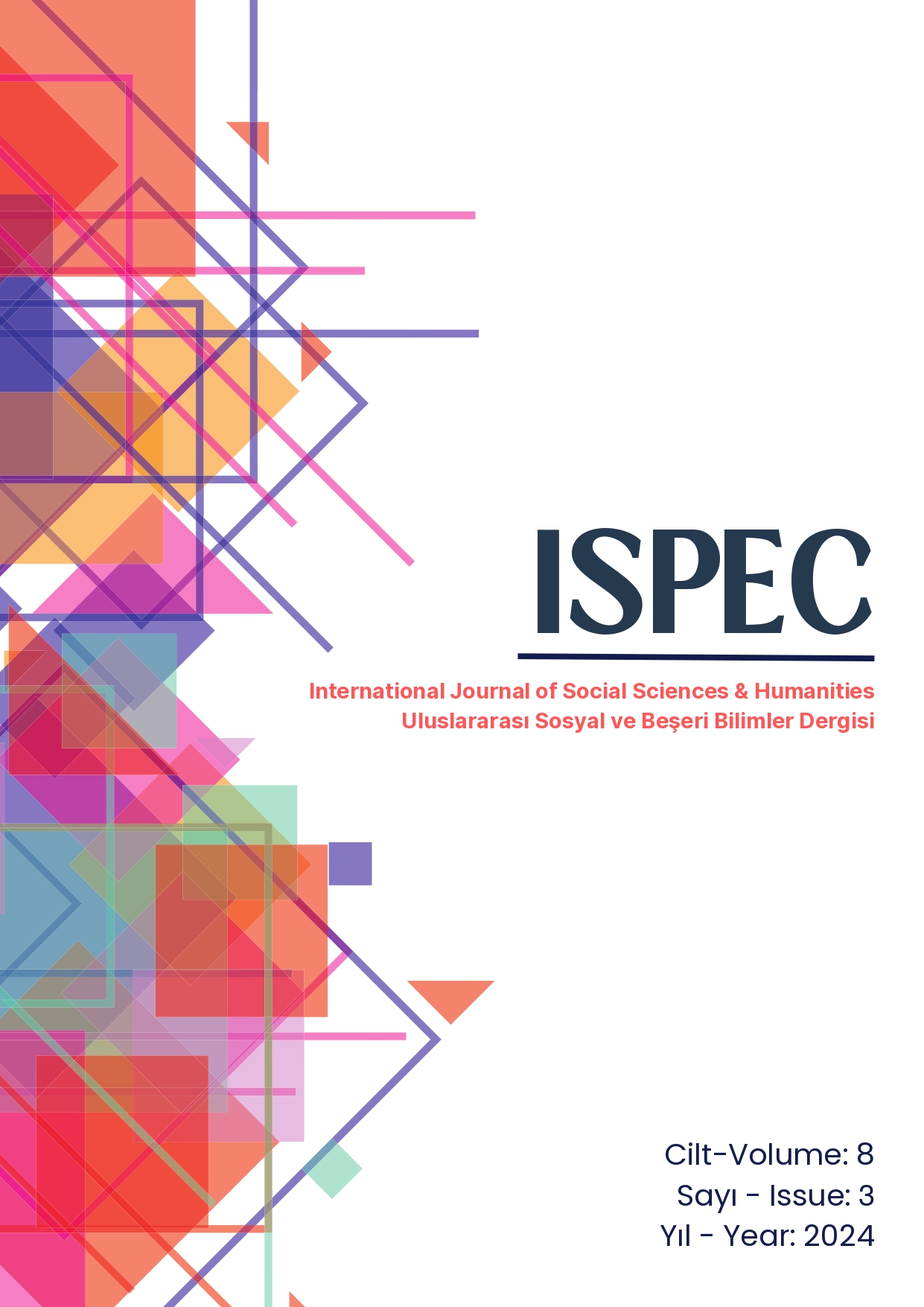Systematic Review on Obsessive Compulsive Disorder and Cognitive Behavioral Therapy
DOI:
https://doi.org/10.5281/zenodo.13771310Keywords:
obsessive compulsive disorder, cognitive behavioral therapy, obsession, compulsionAbstract
The purpose of this systematic review study is to examine the use of cognitive behavioral therapy in individuals with obsessive compulsive disorder. In this study, the systematic review method was used and no field study or any scale was used. Randomized controlled studies published in Turkish and English between 2004 and 2018 in Google Scholar databases, whose abstracts or full text can be accessed with the relevant keywords, were interpreted. This compilation study was carried out in two stages: February, 2024 and May, 2024. As a result of the screening, 6 studies were considered. All studies considered are randomized controlled trials. As a result of this study, it appears that cognitive behavioral therapy is highly effective in obsessive-compulsive disorder patients. The findings of this review suggest that cognitive behavioral therapy may be helpful in providing long-term lifestyle and behavioral changes, and cognitive behavioral therapy has been shown to be a therapy method that accelerates recovery and is an effective method to achieve results in a short time.
References
Akbaş, E., & Yiğitoğlu, G. T. (2018). Obsesif Kompulsif Bozukluk ve Psikoz Eş Tanılı Hastaya Yönelik Hemşirelik Bakımı: Olgu Sunumu. OPUS International Journal of Society Researches, 9(16), 933-949.
Andersson, E., Enander, J., Andrén, P., Hedman, E., Ljótsson, B., Hursti, T., ... & Rück, C. (2012). Internet-based cognitive behaviour therapy for obsessive–compulsive disorder: a randomized controlled trial. Psychological medicine, 42(10), 2193-2203.
Belloch, A., Cabedo, E., & Carrio, C. (2008). Cognitive versus behaviour therapy in the individual treatment of obsessive-compulsive disorder: Changes in cognitions and clinically significant outcomes at post-treatment and one-year follow-up. Behavioural and Cognitive Psychotherapy.
Erbay, G., L. (2011). Obsesif kompulsif bozukluk hastalarında nörosteroid düzeyleri.
Gümüş, Ç., & Alver, E. (2020). Obsesif Kompulsif Bozukluk Tedavisinde Sosyal Medya Etkisinin Önemi. İnönü Üniversitesi Uluslararası Sosyal Bilimler Dergisi, 9(2), 611-622.
Olatunji, B. O., Davis, M. L., Powers, M. B., & Smits, J. A. (2013). Cognitive-behavioral therapy for obsessive-compulsive disorder: A meta-analysis of treatment outcome and moderators. Journal of psychiatric research, 47(1), 33-41.
Öneker, T. (2017). OKB tanısı almamış beliren yetişkinlikte obsesif-kompulsif belirtilerin ve belirti şiddetlerin cinsiyet açısından dağılımının incelenmesi (Master's thesis, Sosyal Bilimler Enstitüsü).
Öst, LG, Havnen, A., Hansen, B. ve Kvale, G. (2015). Obsesif-kompulsif bozukluğun bilişsel davranışçı tedavileri. 1993-2014 yılları arasında yayınlanan çalışmaların sistematik bir incelemesi ve meta-analizi. Klinik psikoloji incelemesi , 40 , 156-169.
Sarıkaş, Ö. (2020). Ergenlerde obsesif kompulsif bozukluk belirtilerinin üstbilişler, erken dönem uyumsuz şemalar ve ebeveynlik biçimleriçerçevesinde incelenmesi (Master's thesis, İstanbul Sabahattin Zaim Üniversitesi, Lisansüstü Eğitim Enstitüsü, Psikoloji Anabilim Dalı).
Steketee, G., Siev, J., Yovel, I., Lit, K. ve Wilhelm, S. (2019). OKB için bilişsel ve davranışsal terapi sonuçlarının öngörücüleri ve moderatörleri: Sekiz bölgenin hasta düzeyinde bir mega analizi. Davranış terapisi , 50 (1), 165-176.
Şafak, Y., Karadere, ME, Özdel, K., Kuru, E., Özcan, T., Türkçapar, MH, & Yücens, B. (2014). Obsesif kompulsif bozuklukta sistematik davranışçı grup psikoterapisinin etkinliğinin değerlendirilmesi.
Yılmaz, B. Obsesif Kompulsif Bozukluk Tedavisinde Güncel Yaklaşımlar. Lectio Scientific, 2(1), 21-42.
Yilmaz, H. (2020) Obsesif kompulsif bozukluk tanısı ile izlenen hastalarda ortoreksiya nervoza.
Whittal, M. L., Thordarson, D. S., & McLean, P. D. (2005). Treatment of obsessive–compulsive disorder: Cognitive behavior therapy vs. exposure and response prevention. Behaviour research and therapy, 43(12), 1559-1576.
Downloads
Published
How to Cite
Issue
Section
License
Copyright (c) 2024 ISPEC International Journal of Social Sciences & Humanities

This work is licensed under a Creative Commons Attribution-NonCommercial-NoDerivatives 4.0 International License.






